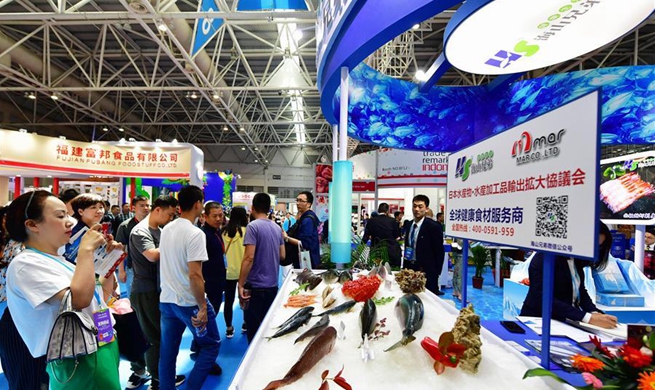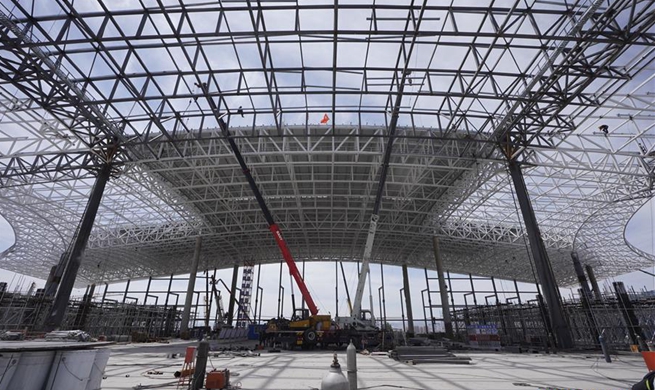ROME, May 30 (Xinhua) -- On its one-year anniversary, analysts said the government of Prime Minister Giuseppe Conte can lay claim to three main things: shutting down Italian ports to would-be asylum seekers, establishing a program to pay a minimum income to the poorest citizens, and surviving.
Conte, a law professor, became the head of Italy's 66th post-World War II government on June 1, 2018, nearly three months after the country's general election. His government was supported by two unlikely allies: the populist, anti-establishment Five-Star Movement and the nationalist, euro-skeptic League.
"Conte's main role has been to be the prime mediator as much as prime minister," Flavio Chiapponi, a professor of political communication at the University of Pavia, told Xinhua. "It's been a difficult job, balancing the priorities of two parties that are not politically aligned."
Chiapponi went on: "The challenge of mediating between the two sides has led to a year where not very much has been accomplished."
The biggest reforms from the government, according to Chiapponi and other analysts, has been the establishment of a minimum citizen's income, an electoral priority from the Five-Star Movement, and curbing the number of migrant arrivals by blocking rescue ships from docking in Italian ports.
Meanwhile, Italy's economy had been forecast to grow 1.3 percent last year, ended the year with a growth rate of just 0.2 percent after shrinking over the final six months of the year. The government clashed with the European Commission over the deficit for this year's budget and now could face up to 3.5 billion euros (3.9 billion U.S. dollars) in penalties for not respecting the terms of the compromise the two sides reached. And the yield on Italian government debt remains far higher than other major European Union member states, reflecting investor nerves and costing the government hundreds of millions in interest payments.
"With a government based on parties that aren't natural allies, any policy proposals have to travel through what amounts to an obstacle course before it can be approved," Gian Franco Gallo, a political affairs analyst with ABS Securities in Milan, said in an interview. "That means less gets done and the overall situation deteriorates a little more."
Antonio Folco Biagini, a historian with Rome's La Sapienza University, this government is different than coalition government's Italy has had in the past.
"Italy has had coalition governments that included incompatible parties in the past," Biagini told Xinhua. "But the difference is that the prime minister was a strong figure who came from the strongest of the parties in the coalition. Conte's an independent, and that makes it hard for him to broker deals between the partners. He has to hold the coalition together."
That task could become more difficult following elections for European Parliament that showed the League, which is officially the junior partner in the Conte government, is now the most popular party in the government. It is not yet clear how much the results will shift the balance of power in the government.
"It's clear that the League will want a greater say now," Chiapponi said. "How will that change how things look a month or two from now? It's too early to tell."













